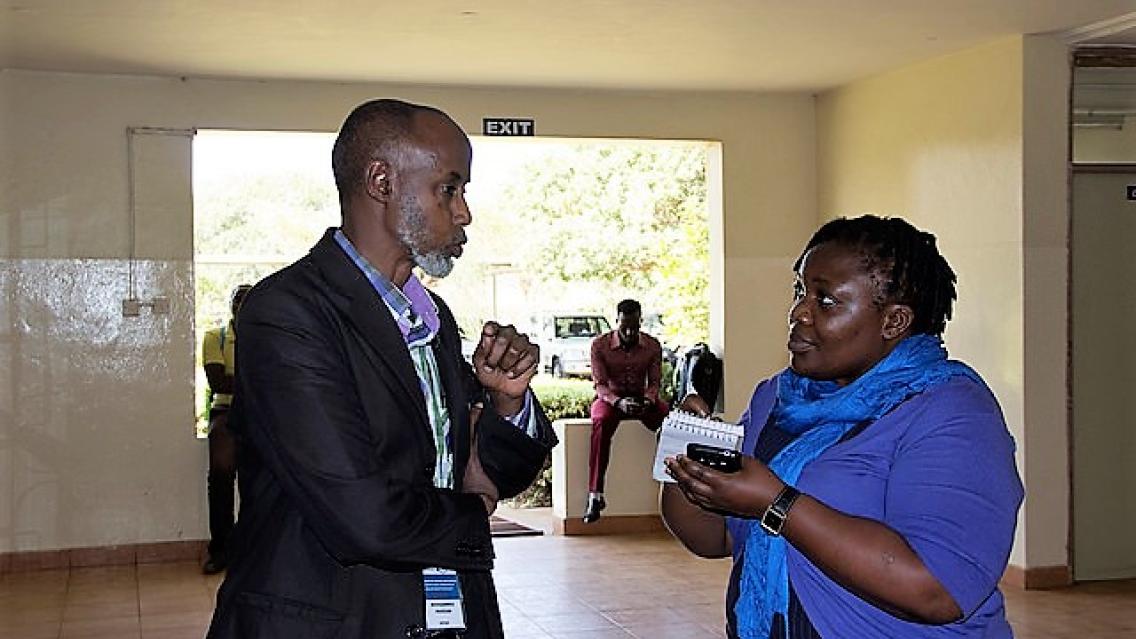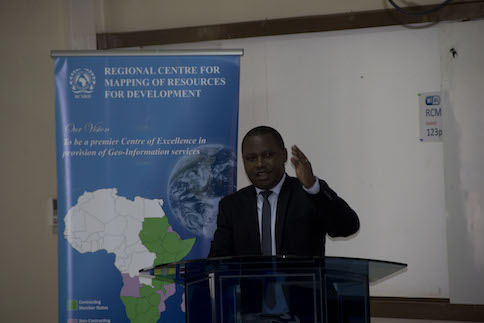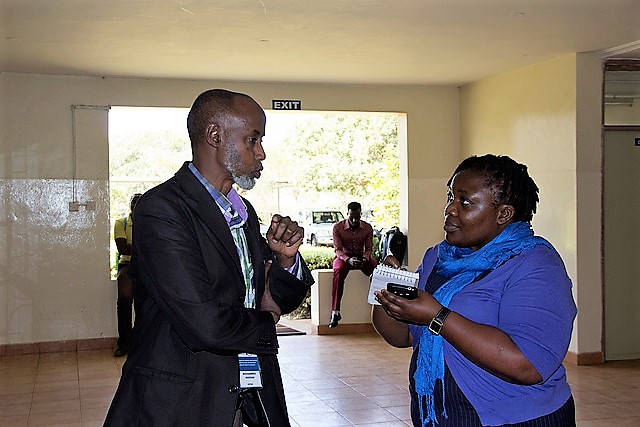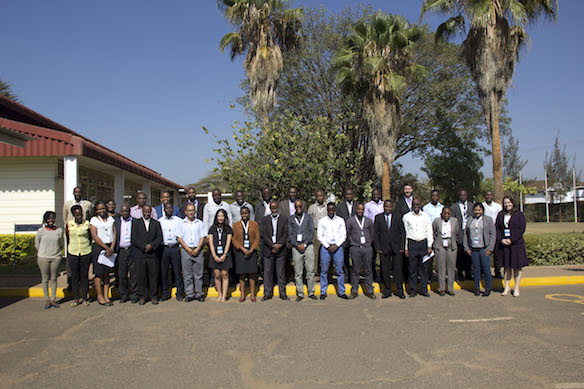RCMRD Hosts Training to Enhance Water Resources Management

The Regional Centre for Mapping of Resources for Development (RCMRD)/SERVIR-Eastern and Southern Africa (E&SA) hosted a week-long Training Workshop on the Variable Infiltration Capacity (VIC) Model and Bias Correction of Satellite Precipitation Data. Spanning 6-10 March 2017, the event’s objective was to equip staff and stakeholders with hydrological modelling and bias correction capabilities to enhance use of Earth observation data for informing water resources management.
 |
| RCMRD Director General Dr. Emmanuel Nkurunziza addresses the workshop participants |
The training, conducted by NASA SERVIR Science Coordination Office (SCO) scientists Kel Markert, Emily Adams, and Rushi Begum, drew SERVIR-E&SA, SERVIR-West Africa, SERVIR-Mekong, and SERVIR-Himalaya team members as well as stakeholders from various institutions in Kenya and the region.
“I came into the workshop knowing nothing about VIC, and now I feel like an expert,” said Faith Mitheu of RCMRD/SERVIR-E&SA after the training.
RCMRD Director General Dr. Emmanuel Nkurunziza stressed the importance of such expertise development through these kinds of trainings, noting that “lack of access to safe water is a harsh reality for millions in the region and the world.”
SERVIR-E&SA Project Director and Chief of Party Dr. Robinson Mugo commented “severe drought since the failure of October-December rains is ravaging member States in the Horn of Africa countries including Ethiopia, Kenya, Somalia, Sudan and Uganda.”
“Water is an essential element for life,” he continued. “Many people must confront daily the situation of an inadequate supply of safe water and the very serious resulting consequences.”
Dr. Nkurunziza pointed out that United Nations Sustainable Development Goal (SDG 6) expands the Millennium Development Goal (MDG) focus on drinking water and basic sanitation to now cover the entire water cycle, including the management of water, wastewater, and ecosystem resources.
“With water at the very core of sustainable development,” he said, “SDG 6 has strong linkages to all of the other SDGs, and also has the ability to underpin them: realizing SDG 6 would in fact go a long way towards achieving much of the 2030 Agenda.”
 |
| Dr. Mohammed Hassan, a hydrologist from ICPAC, tells RCMRD/SERVIR-E&SA Communications and Outreach Expert Dorah Nesoba of his plans to use what he learned during the workshop |
The Director General urged the participants to use knowledge acquired in the workshop to change lives and accelerate the achievement of sustainable water services for all people, with special attention to the unserved poor, by enhancing collaboration among member States and external support agencies and through concerted action programs.
Prof. John Kiema, Director of Technical Services at RCMRD, agreed: “That is the purpose of this Centre -- to promote sustainable development in the member States through generation, application and dissemination of geo-information and allied ICT technologies, products and services.”
He noted the importance of the training workshop not only for water resource management but also for knowledge creation and posterity.
Several of the workshop participants said they plan to put what they learned during the workshop to use. For example, Dr. Mohammed Hassan, a hydrologist from ICPAC, said he will apply knowledge of VIC acquired in the training in his daily work.
Similarly, Kenyatta University post-graduate student George Gor commented: “I will use this in my thesis and when I report back to work at Maseno University, where I am a technician.”
Content for this article provided by Dorah Nesoba, Communications and Outreach Expert at RCMRD/SERVIR-E&SA

Workshop Participants and Instructors
Note:
USAID, the SERVIR SCO, and SERVIR-E&SA organized the training in collaboration with the Permanent Inter-State Committee for Drought Control in the Sahel (CILSS), whose subsidiary, the Agrometeorology, Hydrology and Meteorology (AGRHYMET) Regional Center, implements SERVIR-West Africa; the International Centre for Integrated Mountain Development (ICIMOD), which is the SERVIR-Himalaya host organization; and the Asian Disaster Preparedness Center (ADPC), which implements SERVIR-Mekong.

